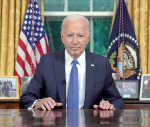You are here
The global economy at a crossroads in 2024
Dec 16,2023 - Last updated at Dec 16,2023
The global economy stands at a crossroads in 2024, with flexibility and vulnerabilities evident. Following the COVID-19 pandemic, the global economy demonstrated adaptability to health and economic challenges. Companies embraced new work models like remote work, while governments implemented economic stimulus measures to counter negative effects. However, certain economic sectors, such as travel, hospitality and entertainment, faced significant setbacks, resulting in job losses and production declines.
Facing global trade tensions, some companies altered supply chain paths and explored new markets. Countries diversified their sources and developed industrial capabilities to adapt to shifts in global trade policies. Nevertheless, trade wars impacted some sectors negatively, reducing global trade volume and increasing costs due to tariffs and protectionist measures.
Amid energy market fluctuations, some countries shifted towards renewable energy sources, promoting environmental sustainability. Economies heavily reliant on oil exports and imports suffered negative effects from oil price volatility, leading to revenue declines and budgetary impacts.
Additionally, the global economy witnessed a shift towards technological innovation, as companies swiftly adopted digital technology to enhance productivity and meet customer needs. However, this transformation could negatively affect some traditional sectors and pose challenges in providing jobs for workers lacking modern technological skills.
Despite climate change challenges, some countries transitioned towards sustainability and clean energy, embracing renewable energy technology. However, nations heavily dependent on traditional industries may face challenges in transitioning to a more sustainable economy.
Throughout 2023, prevailing optimism about a "soft landing" may have boosted confidence, but as the transition to 2024 approaches, caution is justified. Key factors contributing to the fragility of the global economy in the coming year include persistent inflation challenges, economic policy budgeting, global economic interdependence, uncertainty in labour markets, and geopolitical risks.
Inflation challenges persist despite a global decrease, requiring policymakers to balance taming inflationary pressures without stifling economic growth. Economic policy budgeting poses a challenge for central banks and governments dealing with economic policy complexities. The global economic interdependence, highlighted by events in recent years, underscores the complexity of the interconnected fate of different regions.
Uncertainty in labour markets, marked by a significant slowdown in job markets, presents a double-edged sword. While job vacancy instability has helped maintain employment levels, it leaves potential risks. A sudden contraction could lead to further job losses, disrupting the delicate balance that has been maintained.
Geopolitical risks continue to cast shadows on the global economic scene. Ongoing conflicts, trade tensions and geopolitical uncertainties threaten market stability and economic growth. Resolving these issues remains uncertain, adding an element of unpredictability to the economic outlook for 2024.
In conclusion, while the global economy has come close to overcoming the inflation challenge, uncertainties persist. Policymakers, businesses and investors must remain vigilant, adapt to dynamic conditions, and prepare for possible shocks. Striking the delicate balance required to sustain growth while addressing inflationary pressures will be a distinctive feature of managing the global economy in 2024. The world may have avoided a sharp downturn, but the next journey requires navigating carefully through complexities and risks on the horizon.














Add new comment